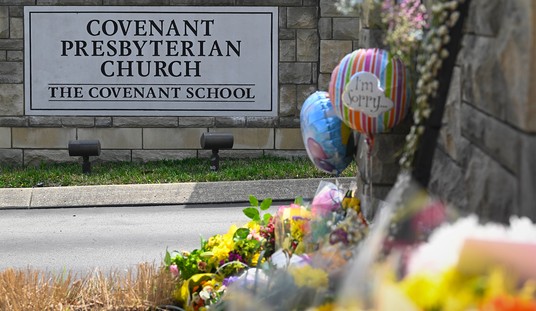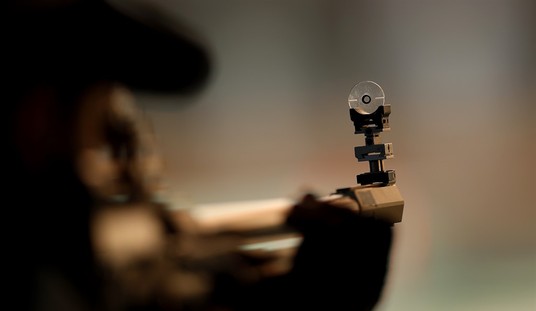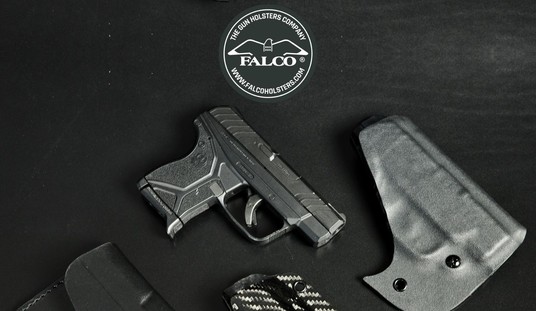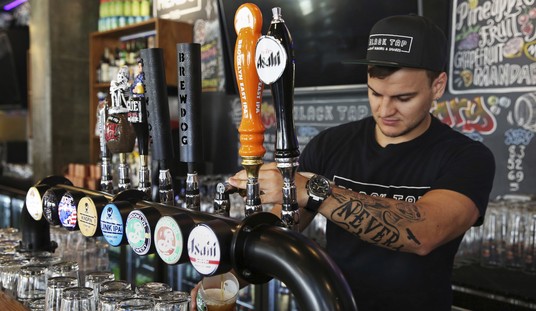If you were a) jacked up, b) held at gunpoint, or c) politely asked to hand over your firearm as you a) left town, b) went about your business or c) tried to help your neighbors in the aftermath of Hurricane Katrina, you might be eligible to get your illegally confiscated gun back if you follow the rules established by the court. According to the terms of the permanent injunction against the city, issued in October 2008, the city has to “make an aggressive attempt to return any and all firearms which may have been confiscated during the period August 29 to December 31, 2005.” You can access the information at the city’s webpage. Scroll to the bottom of the page on the right hand side and click the little red box that reads “Hurricane Katrina Firearms.”
According to Assistant City Attorney Victor L. Papai, as of last October only three applicants had turned in paperwork to get their guns back. Papai does not return calls any longer regarding the tally. The city does not have their guns and it only has to comply with the court order until October 2010.
Local tavern owner JoAnn Guidos is one of those applicants. She owns Kajun’s Pub on St. Claude Avenue and boasts that her establishment “never closes” and that people feel safe there because they know that Guidos knows how to use firearms. During the aftermath of Katrina, she kept the pub open for two weeks, running generators and serving ice-cold beer and hot grilled food to the neighborhood, press and visiting law enforcement. Meanwhile, around her, shooters and looters, along with law enforcement, used St. Claude Avenue as the only highway to and from the Lower 9th Ward.
 |
She said, “I didn’t want to evacuate because I didn’t want people to break in and destroy this place. And that’s what happened. They were breaking into houses and then, setting them on fire.” She recalled, “We had firemen and policemen from all over the country here and I told them I was armed and that this was a safe house and they didn’t do nothing. They had no problem. Then, the U.S. Marshals came walking down the street.”
On September 8, 2008, Guidos and friends decided to leave New Orleans. Things had quieted down with the arrival of federal troops, but heat and humidity stayed high. So, since there was no power restored yet to her building, she decided it would be safe to lock the bar and head to Mississippi. While loading the van in front of the bar, she carried her Browning 12-gauge semi-automatic shotgun and wore a .38 in her belt. Five U.S. Marshals came driving down St. Claude and stopped half a block away from the pub. They got out of their vehicle and came running toward Guidos and crew with M-16s, yelling “Put the guns down!” Guidos said, “They went right after me. They said to put my hands on the car and then, asked if I had any other guns.” She gave them her other guns and asked for a receipt. They never showed any ID, and they never gave her a receipt.
The scenario gets complicated because one of Guidos’ employees, unbeknownst to her at the time, is a convicted felon and she had loaned him a .25 semi-auto to wear. When the Feds ran the ID checks, they discovered this fact and cuffed the employee and took him away. However, Guidos said the employee only had one of her guns on him, and reiterated, she carried two of them and had packed two of them in the van. The charges against her employee were dismissed in July 2006, in the U.S. District Court Eastern District of Louisiana.
On November 12, 2008, Guidos filed paperwork to get her five guns back and hand-delivered it to a sergeant at a police station on Earhart in New Orleans. By January 2009, when she had not heard anything, she contacted Holliday. He contacted Papai, who told Holliday that he [Papai] already had contacted Guidos by phone and by letter. Holliday then sent Guidos a copy of the letter that Papai claimed to have sent her, dated Oct. 24, 2008 – supposedly written to her three weeks before she turned in her claims. Guidos said, “I found it rather odd that the letter they sent to me in response to my forms was written a month before I turned in my forms.” She says he never called her.
Futhermore, she believes she is caught between two systems: the local police department and the federal law enforcement system. She continued, “This is the question I put to Dan and nobody can give me an answer: Where are my damn guns?
“My weapons were taken by the U.S. Marshals, and supposedly they were in federal custody and I was verbally told that the Feds transferred the weapons to New Orleans, but I cannot find out who transferred them and who received them. … There’s paperwork there somewhere that someone signed for. If I can get a copy of the transfer order, than I can at least either get my weapons back and/or the value back of the weapons [value approx. $3,000].”
When asked about Guidos’ predicament, Holliday responded: “I don’t have any information regarding Guidos. Because her situation involved a gun seized as evidence it does not fall under our consent judgment, even now that the charges were dismissed.”
Lessons Learned
He added, “I am glad that the City of New Orleans ultimately decided to rethink their position and agree to the permanent injunction. It was such a clear cut violation of the Constitutional rights of the citizens of New Orleans, citizens of this country, that it didn’t make any sense for the parties to waste precious time and resources. The good thing is that, at the end of the day, we now have a permanent injunction in place that prevents the City of New Orleans from seizing firearms in this manner and protects the citizens of the City of New Orleans in the unfortunate event that a hurricane hits the city in the future.”
Holliday continued, “Additionally, it sets a precedent and is a warning to other governmental entities regarding the unlawful seizure of firearms in general and specifically in times of an emergency. However, there are still hundreds of firearms in the city’s possession that can be claimed. There is still more time for people to claim their firearms. If anyone in your audience reads this article and had a firearm seized following hurricane Katrina (or knows somebody that did), I strongly advise them to check out the City of New Orleans’ website and to make and submit an application.”
Alan Gottlieb, founder of the Second Amendment Foundation, said, “The joint effort between the NRA and the SAF was so strong that it made it impossible not to win the case.” He noted that, according to a SAF survey, public opinion regarding approval of firearms ownership rose about six percent and stayed higher as Americans realized what happened in New Orleans.
Baton Rouge writer Gordon Hutchinson, author of The Great New Orleans Gun Grab, Descent into Anarchy, reacted to the news about the lack of applicants, and said, “I’m not surprised New Orleans hasn’t had any takers. … Most of the citizens who lost decent guns to the uniformed goons in the anarchy after the hurricane figured they’d never see their guns again – and they were right. The cops that stole guns didn’t turn in the quality stuff. That went in personal arsenals. The trash was turned in and inventoried.”
Guidos concluded, “I’m looking at it like it’s a lost case. Even if I did get an attorney to find out if they have the weapons and if they were transferred, then what? How long will it take and at what expense to me for $3,000 worth of weapons?
“I’m extremely disappointed in the whole lawsuit business here. We don’t want to bring it up all the time, because we just want to put it behind us, because this is America and isn’t supposed to happen. … It’s real easy to comply when you ain’t got nothin’.”
Guidos said she’s changed a few things since Katrina: “Number one – I have more guns now. I have all my paperwork in order on my weapons. And I’ll stay inside my building and I’ll be damned if anyone is going to take my guns from me again. I’m not going to let it happen again.








Join the conversation as a VIP Member